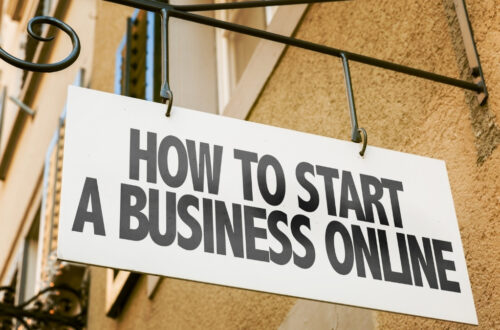
How to Start a Successful Online Business
Starting an online business can be an exciting and rewarding venture. With the digital age transforming how we conduct business, more entrepreneurs are taking their ideas to the internet. This guide will walk you through the essential steps to start a successful online business, from understanding the landscape to scaling your operations.
Understanding the Online Business Landscape
The first step to starting a successful online business is understanding the various types of online businesses available. These include e-commerce stores, service-based businesses, digital products, affiliate marketing, and subscription services. Each type has its unique characteristics and potential for success.
Market Research and Identifying a Niche
To ensure your business idea has a market, conducting thorough market research is crucial. This involves identifying your target audience, understanding their needs, and analysing competitors. Tools like Google Trends, SEMrush, and social media platforms can provide valuable insights.

Steps for Effective Market Research:
- Identify Your Target Audience: Understand who your potential customers are, their demographics, preferences, and purchasing behaviours.
- Analyse Competitors: Look at successful businesses in your niche. Understand their strategies, strengths, and weaknesses.
- Validate Your Idea: Use surveys, interviews, and feedback to validate your business idea with potential customers.
Developing a Business Plan
A well-structured business plan is the foundation of any successful business. It serves as a roadmap, guiding your business decisions and helping to secure funding from investors.
Key Components of a Business Plan
- Executive Summary: A brief overview of your business idea and objectives.
- Business Description: Detailed information about your business, including the mission statement, vision, and values.
- Market Analysis: Insights from your market research, highlighting the demand for your product or service.
- Organisational Structure: The hierarchy of your business, including roles and responsibilities.
- Products or Services: Detailed descriptions of what you’re offering.
- Marketing and Sales Strategy: How you plan to attract and retain customers.
- Financial Projections: Revenue forecasts, budgeting, and financial planning.

“Starting a Business All-in-One For Dummies” is an essential guide for anyone looking to dive into entrepreneurship. This comprehensive book covers everything from creating a business plan to managing finances, marketing, and legal considerations. Whether you’re a seasoned entrepreneur or just starting out, this book provides practical advice and step-by-step instructions to help you navigate the complexities of starting and running a successful business. It’s the perfect resource for turning your business ideas into reality.
Choosing the Right Business Model
Selecting the right business model is critical to your online business’s success. Some popular models include:
- Dropshipping: Selling products without holding inventory. Products are shipped directly from the supplier to the customer.
- Affiliate Marketing: Earning commissions by promoting other companies’ products.
- Subscription Services: Offering products or services on a recurring basis.
- Freelancing: Providing services based on your skills and expertise.
- Digital Products: Selling downloadable products like eBooks, courses, and software.

Factors to Consider When Choosing a Business Model:
- Profit margins
- Initial investment
- Your skills and interests
- Market demand
Setting Up Your Online Presence
Your online presence is crucial for attracting and retaining customers. This involves creating a professional website and establishing your brand on social media platforms.
Steps to Creating a Website
- Choosing a Domain Name: Select a name that reflects your brand and is easy to remember.
- Selecting a Hosting Provider: Choose a reliable hosting provider to ensure your website runs smoothly.
- Website Design and User Experience: Design a user-friendly website that provides a seamless experience. Focus on navigation, loading speed, and mobile responsiveness.

Essential Website Elements:
- Homepage: The first impression of your business. It should be engaging and informative.
- About Page: Share your story, mission, and values.
- Contact Page: Provide multiple ways for customers to reach you.
- Product/Service Pages: Detailed descriptions, high-quality images, and clear calls-to-action.
Building an Online Store
If you’re starting an e-commerce business, building an online store is a critical step. Choosing the right platform and setting up your store correctly can make a significant difference.
Choosing the Right E-commerce Platform
Platforms like Shopify, WooCommerce, and BigCommerce offer various features to help you build and manage your online store. Consider factors like ease of use, scalability, and integration with other tools.

Setting Up Your Online Store
- Product Listings: Create detailed and SEO-friendly product descriptions. Use high-quality images and videos.
- Payment Gateways: Offer multiple payment options to cater to different customer preferences.
- Shipping Options: Provide various shipping methods and clearly communicate costs and delivery times.
Digital Marketing Strategies
Digital marketing is essential for driving traffic to your website and converting visitors into customers. Implementing effective strategies will help you grow your online business.
Key Digital Marketing Strategies
- Search Engine Optimisation (SEO): Optimise your website for search engines to increase organic traffic. Focus on keyword research, on-page SEO, and building high-quality backlinks.
- Content Marketing: Create valuable content to attract and engage your audience. This includes blog posts, videos, and podcasts.
- Social Media Marketing: Build a presence on social media platforms where your target audience spends their time. Use a mix of organic posts and paid ads.
- Email Marketing: Build an email list and send regular newsletters to keep your audience engaged and informed about your products or services.
- Pay-Per-Click (PPC) Advertising: Run targeted ads on platforms like Google AdWords and Facebook Ads to drive immediate traffic and sales.

Managing Finances
Proper financial management is crucial for the sustainability of your online business. This involves setting up a business bank account, managing cash flow, and understanding taxes and legal requirements.
Tools and Software for Financial Management
- Accounting Software: Tools like QuickBooks and Xero help manage your finances, track expenses, and generate financial reports.
- Budgeting Tools: Apps like Mint and YNAB (You Need A Budget) can help you create and stick to a budget.
- Invoicing Software: Tools like FreshBooks and Wave make it easy to create and send professional invoices.

Customer Service and Retention
Providing excellent customer service is vital for building trust and retaining customers. Happy customers are more likely to become repeat buyers and refer others to your business.
Strategies for Providing Top-Notch Customer Support
- Multiple Support Channels: Offer various ways for customers to reach you, such as email, live chat, and phone support.
- Quick Response Time: Respond to customer inquiries promptly.
- Personalised Communication: Use customer data to personalise your interactions and provide tailored recommendations.

Building Customer Loyalty and Retention
- Loyalty Programs: Reward repeat customers with discounts, points, or exclusive offers.
- Follow-Up and Feedback: Regularly check in with customers and ask for their feedback. Use this information to improve your products and services.
Scaling Your Business
Once your online business is established, scaling becomes the next goal. Recognising the right time to scale and implementing effective strategies can help you grow your business sustainably.
Strategies for Scaling an Online Business
- Expanding Product/Service Offerings: Introduce new products or services based on customer feedback and market demand.
- Entering New Markets: Consider expanding to new geographical regions or targeting different customer segments.
- Enhancing Marketing Efforts: Invest in more robust marketing campaigns to reach a broader audience.

Managing Growth Effectively
- Automate Processes: Use automation tools to streamline operations and reduce manual work.
- Hire the Right Team: As your business grows, consider hiring additional staff to manage increased workloads.
- Maintain Quality: Ensure that the quality of your products or services remains high as you scale.
Starting a successful online business involves careful planning, continuous learning, and adaptation. By understanding the landscape, developing a solid business plan, and implementing effective marketing strategies, you can build a thriving online business. Remember, the journey to success is ongoing. Stay committed, be open to feedback, and continually seek ways to improve and grow your business.





